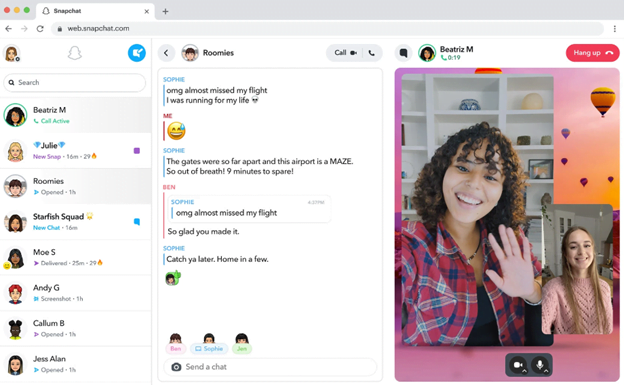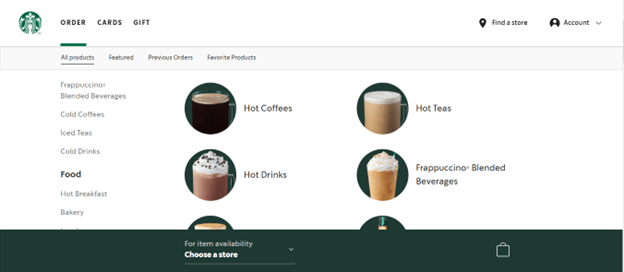We have talked extensively about some of the biggest changes brought on by artificial intelligence technology over the last few years. Two of the many fields that has been affected by breakthroughs in AI is web development and mobile application development.
We previously talked about some of the benefits of using AI to create great mobile applications. However, these applications may not always meet your needs. Fortunately, AI technology has also led to the inception of a number of browser-based solutions that can be worthy alternatives.
AI Helps with the Rollout of Impressive New Browser-Based Solutions
Mobile apps represent a huge market valued at over $200 billion in 2022 and are expected to top $400 billion by 2028. It’s seemingly compulsory for most developers to build mobile versions of their applications or risk losing millions of potential users. However, there’s been a recent shift from mobile and desktop apps to browser-based apps. This shift is propelled by web frameworks becoming more advanced and enabling developers to include sophisticated features in their web apps.
Fortunately, AI technology has helped with the development of new web apps, including progressive web apps (PWAs). Companies are using AI tools to migrate from mobile apps to web apps for many reasons including:
1. Multi-Platform Compatibility
When programming a web app, you don’t need to worry much about compatibility, as every feature you implement on the web app will be compatible with all browsers. You just need to program the features correctly, and your users can access them regardless of what browser they’re using (Google Chrome, Firefox, Opera, Safari, etc). Compare this to developing mobile apps for the iOS and Android operating systems– each operating system uses different frameworks and technologies, so you’ll have to build the app for each one separately, expending more effort and time.
The best part is that many of these web apps are using AI technology to provide the optimal user experience. This includes utilizing personalization technology, which relies heavily on machine learning.
2. Efficiency
You don’t need to download any app that’ll take up storage space on your device when you can access the platform directly from your browser. Web apps also use much less computing power compared to native apps you download on your PC or mobile phone. Web developers know that they’re working within the constraints of a browser, so they tend to optimize their product to operate as efficiently as possible with fewer computing resources.
3. No Frequent App Updates
One of the biggest benefits of AI is that it improves efficiency. AI helps businesses develop browser apps that allow their users to complete tasks with less effort than ever.
Every app you download on your device needs to be regularly updated, as developers push code updates to add new features or fix bugs. If you haven’t updated your app, then you can’t access the new features the developers add. Compare this to a browser-based platform that automatically updates each time you reload it– once the developers add any feature, you can access it immediately.
Many people tend to forget their app updates, which can pose significant risks. For example, outdated apps can have security bugs that leave the user vulnerable to hacking and data theft. But, using browser-based apps removes this risk altogether.
4. Accessibility and Reliability
You can access a browser-based app from any device, including guest devices, so far you have the correct login details. Were it a mobile or desktop app, you’ll need to download it on every device you want to use it from, which is inconvenient when using guest devices. This easy accessibility comes in handy when your device is down due to technical glitches and needs repairs.
Web apps also tend to be more reliable, with a lesser chance of crashing due to glitches. On the other hand, resource-heavy apps are prone to frequent crashing, especially on devices with lower processing power.
Examples Of Successful Replacements Of a Mobile App With a Web App
Snapchat for Web

Snapchat is a popular social media app with 550 million monthly active users. People use it to send messages, photos, and videos that disappear after 24 hours or interact with creative camera filters. Since launching in 2011, Snapchat has primarily been a mobile app that works best with high-end smartphones. However, in September 2022, the company unveiled a web app that allows users to access Snapchat directly from a web browser.
The Snapchat Web app works similarly to the mobile app. You can send messages, photos, and videos, directly from your PC. You can also start voice calls using your PC’s mic or video calls with your webcam. Likewise, you can view or upload high-quality footage with little lag.
The Snapchat Web app is one of the most advanced browser-based platforms in existence and a fitting example of replacing a mobile app with a browser-based solution.
Dribbble

Dribbble is a popular social network for designers and creatives, with over 6 million monthly active users. You can use it to show off your creative work, connect with other designers, and find design-related jobs.
In 2021, Dribbble discontinued its iOS and Android apps to focus on a browser-based solution. The company launched the mobile app in 2017 but eliminated it four years later because users overwhelmingly preferred the web-based version, which offers a very intuitive interface for users to explore millions of design ideas and portfolios submitted by others to draw inspiration for theirs.
On the Dribbble web app, you can sort through designs depending on their type, e.g., landing page, UI/UX, animation, etc. If you come across a design you like, you can connect with the designer or even hire them to perform similar work for you. The web app offers is very responsive, with its resolution and user interface adjustable to every type of PC and mobile display.
MetaTrader 5 Web Terminal

MetaTrader 5 is a platform that allows users to trade a wide range of assets including precious metals, commodities, and currencies. In 2022, MetaQuotes, the company behind the platform, released the MetaTrader 5 Web Terminal that lets you trade directly from your browser on any PC or mobile device.
The MetaTrader 5 Web Terminal was designed for mobile users so that they don’t need to download any app to trade. Just head to your mobile browser and type in the correct link, log in, and you’re good to go. The web app has an intuitive interface that makes it easy to find the asset you want to trade, and you can use charts to analyze assets using over 30 technical indicators. You can test the web-based trading app’s features with a demo account and only request a real account when you’re ready to trade with real money.
The MetaTrader 5 Web Terminal is more convenient to use than native desktop or mobile apps. Just launch the website on your browser anytime you want to trade, close it when you’re done, and re-open it any time you want to trade again or monitor your portfolio.
Starbucks

Starbucks is the world’s biggest chain of coffeehouses. In 2009, the company launched a mobile app that lets users order meals from any of its stores across the globe. The mobile app aggregates all the company’s store locations, and users can order from the one closest to them.
In 2018, Starbucks launched a web app providing the same functionalities as its mobile app but directly from a web browser. Customers no longer need to download the app to order items– they can head to the official domain name, login, and order any item from their PC or mobile phone browser. The web app makes it more convenient to order Starbucks meals and gives the company more sales.
AI Technology Leads to Major Developments in Browser-Based Apps
A growing number of businesses are finding creative ways to utilize AI technology to develop cutting-edge web apps. They will replace mobile apps for many applications.
Since the advent of Progressive Web Apps (PWAs) in 2015, many developers are increasingly migrating from mobile apps to browser-based platforms. Thanks to advanced web frameworks, progressive web apps now offer users a similar experience to native apps directly from a web browser. They’re usually responsive and have an intuitive interface, which makes them enjoyable to use.
We mentioned the advantages of AI-based web apps over mobile apps and successful examples of replacing a mobile app with a web app. Web apps are the future of the internet, so it’ll be wise to hop on the trend and build a web app for your platform as soon as possible.











